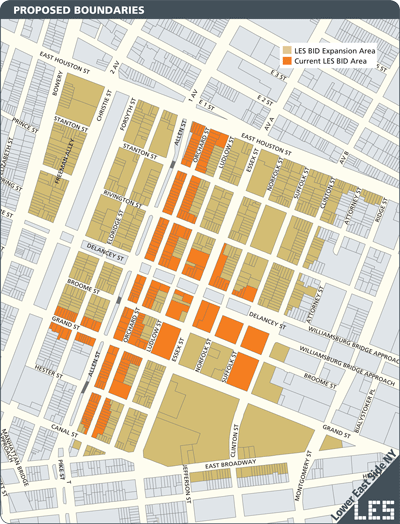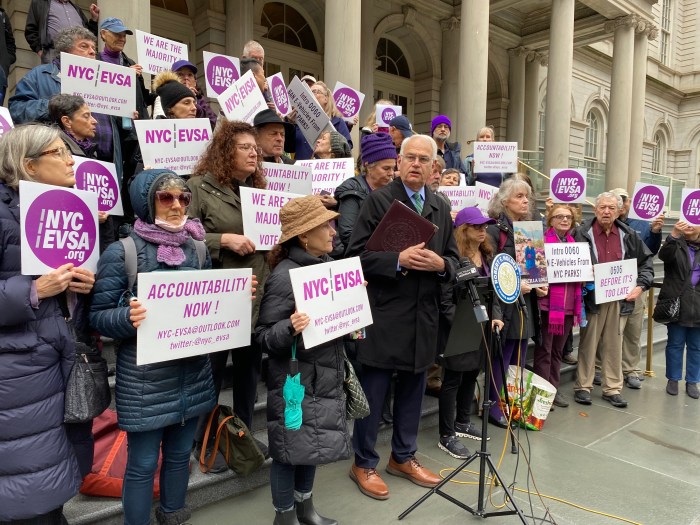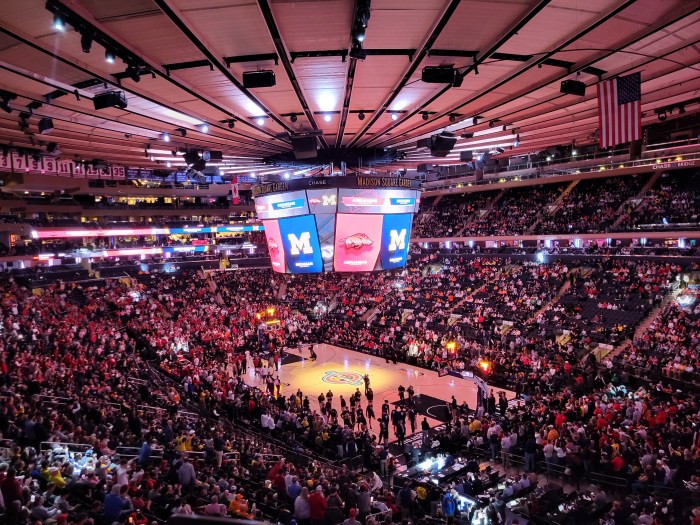
BY SAM SPOKONY | The Lower East Side Business Improvement District is weeks away from sending a proposal to city officials for the long-planned expansion that would triple the BID’s size.
There appears to be relatively smooth sailing ahead, as the proposed expansion — first developed more than two years ago — has garnered overwhelming support from local businesses and stakeholders.
Proposals for new BIDs in the Downtown area have been met with heated resistance recently, including in Soho and Chinatown. While the Chinatown BID was ultimately approved, the Soho proposal continues to sit in limbo.
However, of the owners and tenants within the proposed enlarged coverage area for the Lower East Side BID who have responded to an ongoing ballot survey, more than 99 percent voted in favor of the expansion, according to Bob Zuckerman, the BID’s executive director.
“We’re very hopeful about this,” Zuckerman said in an interview on Monday, “and we think it’s going to be a very worthwhile investment for property owners and small businesses.”
Zuckerman added that he is optimistic about gaining final approval for the expansion by the start of next summer.
The BID currently covers about 400 properties along the length of Orchard and Allen Sts., as well as a few blocks on Delancey, Broome and Grand Sts. The proposed expansion would increase the coverage to roughly 1,200 properties, stretching the district’s boundaries west to Bowery, east to Clinton and Attorney Sts. and south to East Broadway.
That amount of growth would also triple the BID’s annual budget to nearly $1 million.
Along with providing supplemental sanitation services for participating properties, including graffiti removal and trash pickup, the BID actively promotes the businesses within its district through advertising and events. It also offers grants to businesses for storefront improvements, Web site development and security cameras.
In exchange for the services, landlords pay an annual fee that varies depending on the type and size of the property. Typically, Zuckerman said, referring to “average” buildings with three or four stories and strorefronts of around 25 feet, the fee is about $1,000 per year.
The BID held two public meetings in July to explain the proposal to neighborhood property owners, business owners and residents — a required step in the government approval process. The response at the meetings was largely positive. The next step is to send the plans to the city Department of Small Business Services, which Zuckerman said he expects to do by mid-October.
Approval from S.B.S. would be a major step forward for the expansion plans, which would then be referred the Department of City Planning.
Before going into effect, the proposal would need to be approved by City Planning — which would consider a recommendation from Community Board 3 — and the City Council.
Councilmember Margaret Chin, who attended one of the public meetings in July, has expressed support for the expansion, citing a need to create a more positive environment for small businesses on the Lower East Side.
“I look forward to seeing the BID’s plans for expansion continue in coming months,” Chin said. “We must encourage the development of affordable commercial and office space to bring a daytime presence to the Lower East Side. We have enough bars and nightlife. It is time to focus our efforts on building spaces for small businesses and start-ups so they can plant their roots in the Lower East Side.”
David Bensinger, who owns The Little Laptop Shop, a computer repair shop on Clinton St. that is within the BID’s proposed new boundaries, said that he is keeping his fingers crossed that the expansion is approved. The shop opened in 2009, and during that time it was included in a BID expansion pilot program that has since ended.
“The pilot program was a fantastic thing for me and the neighborhood,” Bensinger said. “It meant that our streets were cleaned on a daily basis, and the BID office helped all interested local businesses with marketing and promotions.”
Staff members of Dixon Place, a nonprofit arts organization based on Chrystie St. — within the proposed new boundaries — were also vocal about their wishes for the expansion to go through.
“We support it 100 percent,” said Tim Ranney, Dixon Place’s director of marketing. “We need the BID as a partner in all the services that they offer.”
The few small business owners in the area that are against the expansion generally believe that the BID’s annual fee will be an unnecessary burden — one they can’t really afford — and that the BID won’t provide enough added value.
“I don’t see how it could actually generate more business for us,” said Alex Young, a manager at Freeman’s Sporting Club, on Rivington St., which sells high-quality menswear. “I mean, as it is, we’re two blocks away from Soho. So we don’t really need any help.”



































